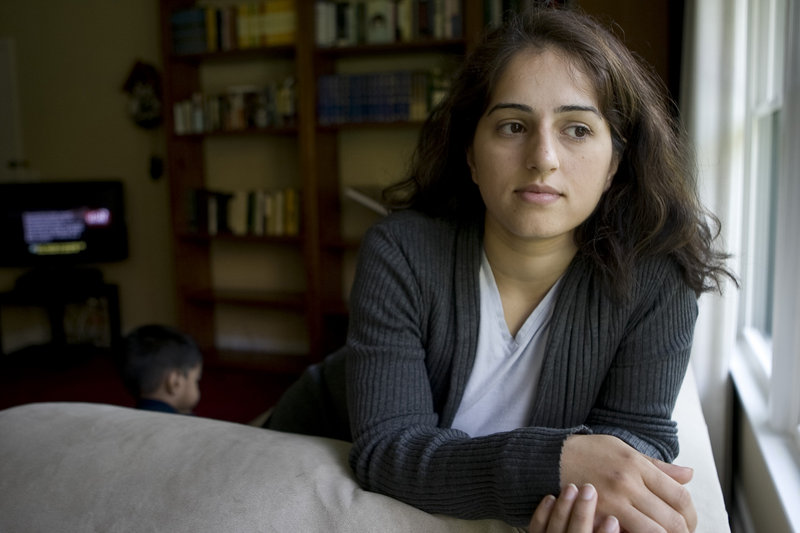CHICAGO – Safoorah Khan hoped 2008 would be a turning point in her spiritual life.
Khan, a teacher who had recently married and was about to start a family, wanted to fulfill one of the most important requirements of her Muslim faith by making the once-in-a-lifetime pilgrimage to Mecca. Only one thing stood in her way: her employers at the Berkeley, Ill., school district.
Denied an unpaid three-week leave of absence so she could make the pilgrimage, known as the hajj, Khan submitted a letter of resignation, taught for several months until her scheduled departure and sued the Berkeley school district for religious discrimination.
Postponing the journey of a lifetime was simply not an option, and she made the trip to Mecca after she left her job, she said.
“I couldn’t justify to God (by saying): ‘OK, I’m giving up this opportunity and not go because Berkeley has told me I can’t,’” she said. “I felt it was my right to go. I wasn’t going to let them decide when I was going to hajj.”
Last week, the U.S. Department of Justice reached a settlement with the school district and a consent decree that requires the board to consider similar religious accommodations on a case-by-case basis.
Religious-liberty advocates say the resolution paves the way for American Muslims to fulfill the fifth pillar of their faith without repercussions from their employers.
“For many people, their faith defines them,” said Ed Yohnka of the American Civil Liberties Union of Illinois. “We need to be mindful of that when it comes to making appropriate accommodations.”
As many faithful Muslims launch their pilgrimages this week, Khan is celebrating the end of her legal battle and plumbing the depths of the spiritual journey that began three years ago. She has wrestled with whether she truly met her obligation to God when she had the chance to make the pilgrimage.
“The once-in-a-lifetime requirement you want to do perfectly. You want to do everything right by the book,” said Khan, 30, who remains unemployed.
“Should I have stayed here and mended my ways with them and come to some compromise? That’s something I think about to this day.”
“When someone has the chance (to make the pilgrimage), they really want to act on it, not to delay it,” said Sheikh Kifah Mustapha, the Chicago-area imam who is fighting his own legal battle after his chaplaincy appointment was revoked by the Illinois State Police. “You never know what will happen the next year.”
But the trip requires intense preparation and sacrifice, both logistically and spiritually. Muslims must clear debts and financial burdens. They also are encouraged to mend disputes.
Khan had wanted to make the pilgrimage more personal by paying her own way, so it had to wait until she had a full-time job. Everything seemed to fall into place in 2008.
But her sacrifice started months before the pilgrimage began. Hired in the fall of 2007 to teach a supplemental math class at MacArthur Middle School in Berkeley, she cautioned her principal the following spring that she and her husband planned to make hajj in December 2008. Just submit her paperwork, he told her.
But in August, the school board denied her request. She tried again in September, explaining in a letter her need for a religious accommodation.
In fact, she was willing to make accommodations, too, Khan said. Because her class was taught in six-week rotations, she was prepared to take a six-week unpaid leave so students on that rotation would only work with one teacher. But she never got the chance to offer that concession.
After the school board again denied her request, the superintendent refused to discuss it further, so she submitted a letter of resignation, agreeing to work through November. She also called a lawyer and sued.
Though her lawyer warned her the case would take a while to wend its way through the court system, life was looking up. Hours before she left for Mecca, doctors called to tell her she was pregnant.
On the day she left Mecca, Khan suffered the first symptoms of a miscarriage. That loss, combined with the stress of unemployment and the lawsuit, left her feeling emotionally exhausted and far from spiritually renewed when she returned home. Instead, she felt robbed and resentful.
Days after returning from hajj, Khan found she was already pregnant again. The couple named their son Obayd, meaning “little servant of God.”
She considers the settlement of the case a gift as well. It is an indication that her struggle enabled future teachers to practice their faith, Khan said.
Attorney Bill Gleason, who represented the Berkeley school district, said board members still don’t believe they violated Khan’s rights.
“Because Ms. Khan was able to do this at another time in her life that didn’t conflict with school, it became a personal preference that we didn’t have to accommodate,” he said.
Copy the Story Link
Send questions/comments to the editors.



Success. Please wait for the page to reload. If the page does not reload within 5 seconds, please refresh the page.
Enter your email and password to access comments.
Hi, to comment on stories you must . This profile is in addition to your subscription and website login.
Already have a commenting profile? .
Invalid username/password.
Please check your email to confirm and complete your registration.
Only subscribers are eligible to post comments. Please subscribe or login first for digital access. Here’s why.
Use the form below to reset your password. When you've submitted your account email, we will send an email with a reset code.